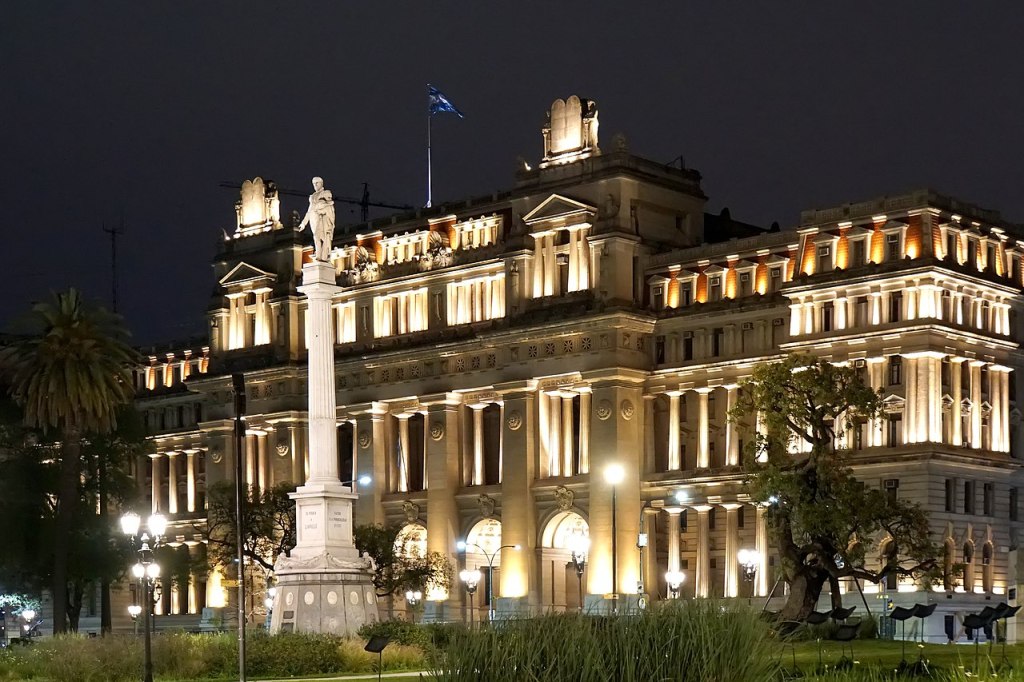Last month, the Supreme Court of Justice of the Argentine Nation (Argentina) delivered a decision that upheld freedom of expression and protected free access to public information in a case regarding the right to be forgotten. The outcome of the case sets an important precedent for protecting access to reliable, verified information about people in the public eye—key for Wikipedia and Wikimedia projects, which rely on third party sources to verify information about living people.
The right to be forgotten is the principle that allows individuals to request that information about themselves be de-indexed from search engine results, rendering that information less prevalent online. The Wikimedia Foundation has spoken out about issues related to the right to be forgotten in the past, calling attention to the negative impact it could have in limiting access to verified, public information. When public figures can pick and choose what verified information is available about themselves online, it provides an incomplete picture to the public, and a distorted image of knowledge on Wikipedia and Wikimedia projects.
In March 2022, the Wikimedia Foundation submitted an amicus brief to the case Denegri, Natalia Ruth C/ Google Inc S/Derechos Personalísimos (CIV Docket No. 050016/2016/1). The individual who brought the case, Natalia Denegri (i.e., the plaintiff), invoked the right to be forgotten in order to delete information related to them from twenty years ago, suing Google Inc. to remove the information from search engine results. The plaintiff expressed that journalistic facts extracted from their media interviews, which link them to a well-known Argentinian criminal case from the 1990s (known as the “Cóppola Case”), are now irrelevant, unnecessary, and cause them ongoing serious damages.
In our amicus brief, the Foundation argued that the right to be forgotten was not the appropriate remedy for this circumstance and, if used, would lead to an unacceptable violation of freedom of expression and the right to information. The Supreme Court of Justice agreed that this case had great public interest and that removing the content from internet search engines would affect freedom of expression and deprive society of access to relevant information.
In this decision, the Court also found that news or information that has been part of the public debate continues to remain relevant to the public, regardless of how much time has passed. The Court went on to say that removing information solely because a period of time had passed would be “seriously endangering history as well as the exercise of social memory that is nourished by the different facts of culture, even when the past is reflected to us as unacceptable and offensive by today’s standards” (Fallos 345:516).
Finally, the Court concluded that there are no legal grounds that “demonstrate that a person who was and is a public figure has the right to limit access to truthful and public interest information” available on the internet (Fallos 345:520).
The Wikimedia Foundation celebrates that freedom of expression and access to information––crucial to the public interest and the ability of Wikipedia and Wikimedia projects to thrive–– prevailed in this case.
This case is part of a global trend of right to be forgotten requests to remove verified information about public figures. Recently the Supreme Court of Chile confirmed the rejection of an appeal filed by a former television director. The former television director had sought to remove from search engines any hyperlinks to access news associated with abuse allegations in which they were involved in 2018.
Similarly, the Supreme Court of Brazil confirmed in the 2021 ruling of the “Aida Curi” case that the right to be forgotten cannot be invoked to prohibit the publication of facts that have been lawfully obtained, including historical facts related to crimes. We respect the application of the right to be forgotten, as long as this does not interfere with the right of everyone else to access public information.
We celebrate the outcome of this case, and will continue to protect and defend free access to knowledge globally.
– Ellen Magallanes, Senior Counsel, and Amalia Toledo, Lead Public Policy Specialist for Latin America & the Caribbean, 28 July 2022
Twice a year, the Wikimedia Foundation publishes a Transparency Report, in which it reports all right to be forgotten requests we receive and our responses, among other requests to remove or alter information on our projects as well as requests for user data.
Related blog posts:
- Wikipedia and the law of digital platforms in Chile – December 2021
- Do Europeans have a right to be globally delisted? The Court of Justice of the European Union says no – September 2019
- Don’t Blink: Public Policy snapshot for March 2022

Can you help us translate this article?
In order for this article to reach as many people as possible we would like your help. Can you translate this article to get the message out?
Start translation
